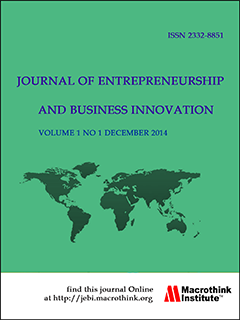Non-Performing Loans and Commercial Bank Profitability: Evidence from Cambodia
DOI:
https://doi.org/10.5296/jebi.v10i2.21229Abstract
This study looks at the macroeconomic and bank-specific factors that affect non-performing loans (NPLs) and how they affect Cambodian banks' profitability. The research in the article uses panel data with a sample of 35 commercial banks in Cambodia from 2017 to 2022 and 210 observations. The findings showed that among the factors influencing non-performing loans among commercial banks in Cambodia are bank profitability, bank size, and inflation. The results also show that while the loan-to-deposit ratio, bank size, economic growth, and inflation have positive and substantial effects on the profitability of Cambodian banks, the NPL ratio has a negative and significant impact on that profitability. The findings suggest that Cambodian banks should align their loan practices with the state of the economy because NPLs typically rise during economic downturns and fall during stable economic times. To reduce the surge in nonperforming loans brought on by increased lending, banks should develop strong credit risk management practices. And banks should take advantage of their economies of scale to improve the gathering of borrower data and lower the number of nonperforming loans.
Downloads
Published
How to Cite
Issue
Section
License
Copyright (c) 2024 Journal of Entrepreneurship and Business Innovation

This work is licensed under a Creative Commons Attribution 4.0 International License.


